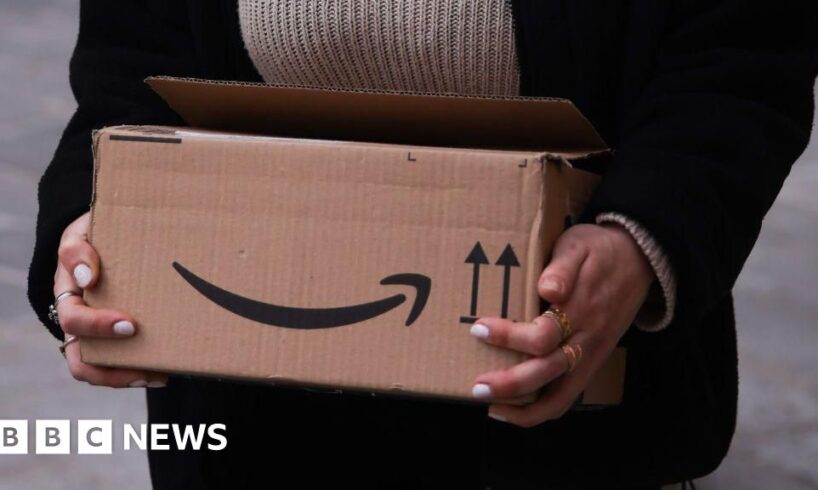
Natalie ShermanBusiness reporter
Nurphoto via Getty
Amazon has agreed to pay $2.5bn (£1.9bn) to resolve claims brought by the US government that it tricked millions of people into enrolling as Prime members and made it difficult to cancel.
A total of $1.5bn will go to refunds for customers who were duped into signing up for the service, according to the proposed settlement announced by Federal Trade Commission (FTC).
The deal came just a few days after trial began before a jury in Seattle. It marks a major victory for the FTC, yielding the largest ever civil penalty secured by the agency.
Amazon, which did not admit or deny the allegations, said it had “always followed the law” and the settlement would allow the firm to “move forward”.
Prime offers free shipping, access to streaming movies and more. Hundreds of millions of people around the world subscribe to the service, which costs $139 a year in the US, or $14.99 a month, and £95 a year in the UK.
The FTC had targeted Amazon practices, such as pop-ups during checkout that repeatedly suggested customers sign-up for Prime, collecting billing information without fully disclosing terms or making it clear how to decline the service.
They also took aim at the company’s offer of one-month Prime trials, which did not clearly state that customers would be automatically enrolled at the end of the month.
The agency said such designs violated consumer protection laws.
“The evidence showed that Amazon used sophisticated subscription traps designed to manipulate consumers into enrolling in Prime, and then made it exceedingly hard for consumers to end their subscription,” FTC Chairman Andrew Ferguson said.
“Today, we are putting billions of dollars back into Americans’ pockets, and making sure Amazon never does this again.”
An estimated 35 million people in the US who were affected by such practices between June 2019 and June 2025 could be eligible for refunds, worth up to $51, according to the FTC.
Amazon agreed to automatically refund customers who used Prime benefits fewer than three times over a year after enrolling. Those who used it fewer than 10 times over the course of a year are eligible but must file a claim.
As part of the settlement, Amazon will no longer be able to feature buttons saying “No, I don’t want free shipping” and must create an easy way to cancel Prime.
The FTC said Amazon was aware its practices might be questioned, pointing to internal documents in which executives and employees made comments like “subscription driving is a bit of a shady world”.
After the settlement was announced, Amazon spokesperson Mark Blafkin said the firm worked “incredibly hard to make it clear and simple for customers to both sign up or cancel their Prime membership”.
“Amazon and our executives have always followed the law and this settlement allows us to move forward and focus on innovating for customers,” he said.
Amazon had already made some changes to its practices while trying to fend off the lawsuit, which the FTC filed in 2023 under former President Joe Biden.
At the time, the agency was led by Lina Khan, who made her name calling for tougher anti-monopoly scrutiny of firms such as Amazon.
Ferguson, who was appointed by President Donald Trump to lead the agency earlier this year, has also taken a hard line on tech companies.
But some criticised the FTC after the settlement was announced, saying if it were serious about cracking down on unfair subscription practices it would have continued pushing for a new rule requiring easy cancellation.
The rule was put in place under the Biden administration and then struck down by an appeals court earlier this year.
“Enough with this game of whack-a-mole,” said Nidhi Hegde, executive director of the American Economic Liberties Project, a group that has called for tougher scrutiny of big companies.
“If the Commission is serious about protecting people from deceptive subscription schemes, it should re-issue the Click-to-Cancel rule today.”





